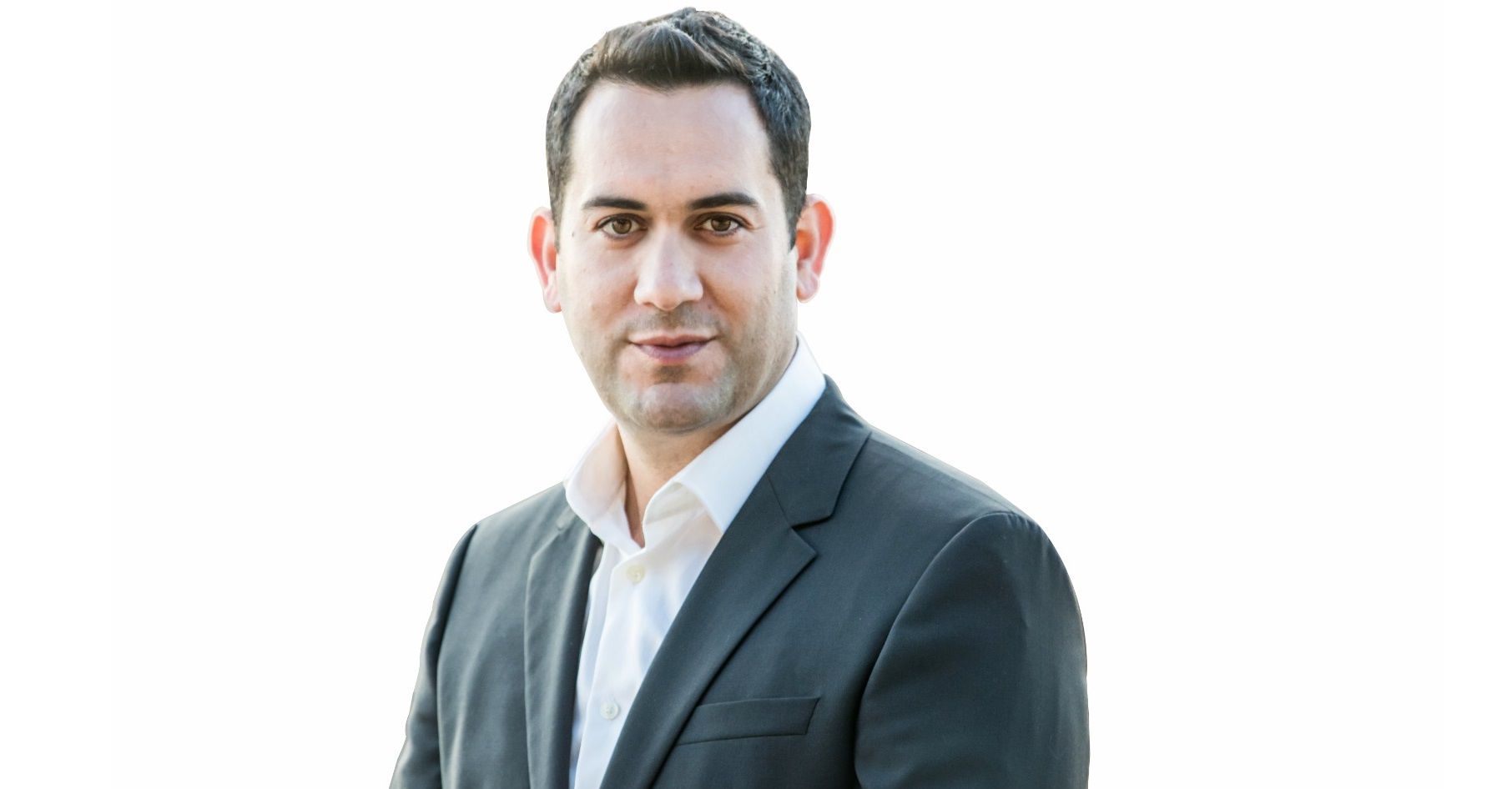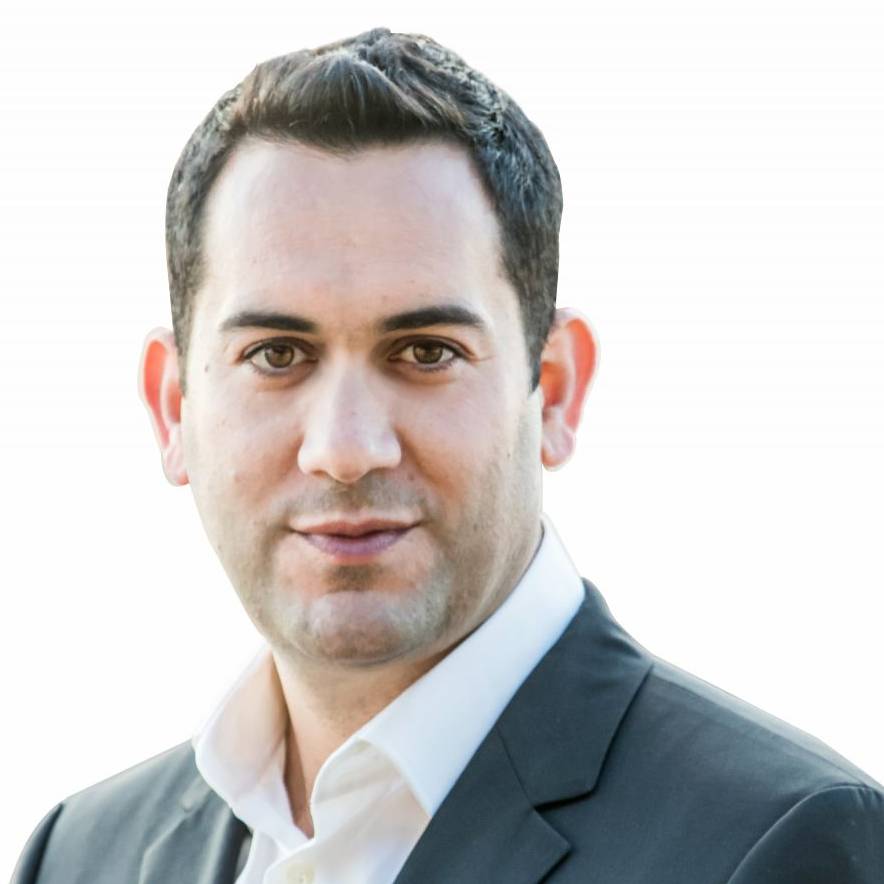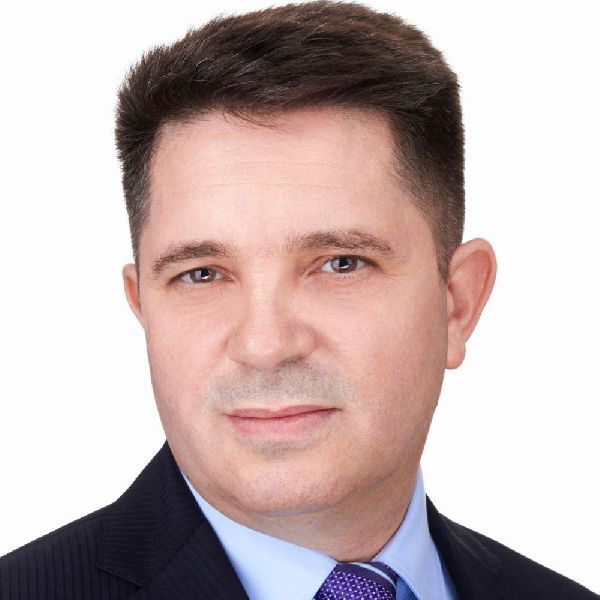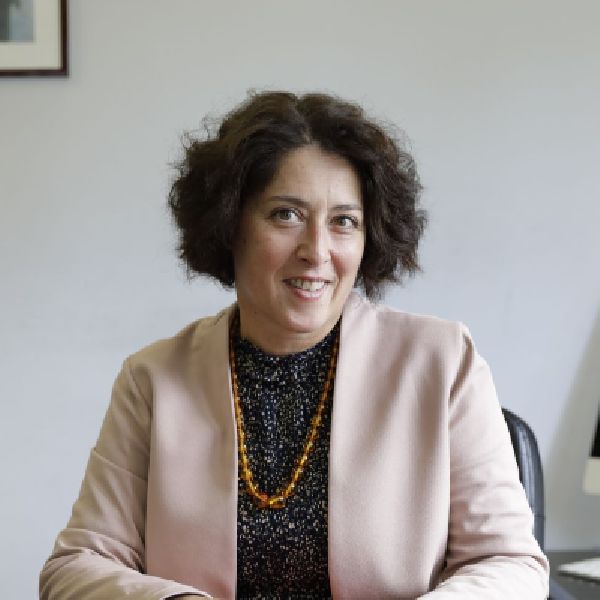
|
18.11.2021 | Teodor Burnar
|




|
Mr. Yossy Haezrachy (Israel): The crypto technology is amazing, but it can easily go rogue and turn to drug money and weapons money
(continued – for Part 1 click here)
And the case started, and they filed a motion of defense, saying "It's not us, we don't know who you want, everything you're saying is blah, blah, blah, we've never lied, cheated or stolen". We got to court, and we were able to receive evidence, in the form of a video, showing the same broker who had spoken to our client, on a yacht with her friends, laughing of how they stole money from clients.
Just so you understand the size of this scam, we found out later in court that the broker was making 2 million dollars a year. The broker - not the company, not the CEO. The broker! She's a 24-year-old woman that lived in Los Angeles and then moved to Israel.
So we had this movie on the yacht, we showed it in court, the judge was shocked, and she advised the other side to settle the case as soon as possible, before this thing blew up. Yet little did we know that a journalist in Israel, writing in English, found out about this case and received the video from court. And she published it, cause she's allowed to. It's all legit.
And this case became very, very famous. At the time we were handling about 50-60 cases, in the amount of approximately 5-6 million dollars in total. It was known that our firm is the firm that fights Binary Option.
About three weeks after this journalist published the story, I received a phone call from none other than the FBI. They asked me to send them our lawsuit, our affidavits, and all the evidence we have. And I did - cause, if the FBI asks, that's what you do. And about two months after we've sent the documents, we settled the case with Big Option, and three days after we settled the case, there was a very big story in the New York Times, which every Israeli newspaper and some of the biggest economic newspapers in the world covered, showing a person named Lee Elbaz landing in New York and being arrested for financial virtual crimes by the FBI. Lee Elbaz was the CEO that we sued in Israel.
The other person, the broker that was making two million dollars a year, was arrested a month after. And just a year ago, it was publicized that Lee Elbaz was indicted by a grand jury, and her punishment was 18 years in federal prison in the USA. And it all started from a small case that we began in a city called Khadera in Israel.
About three weeks after this journalist published the story, I received a phone call from none other than the FBI
To say that I'm happy for Lee Elbaz being in prison? No, I'm not happy. I think that she stole millions of dollars from people who have all the rights and reasons to be mad at her. But I think that the impression in Israel was that binary options are OK, that it's not really a scam. The biggest gain is that from that moment on, the Israeli government became more involved, my firm attended a few government committees and meetings regarding Binary Option. During 2018, if I recall correctly, Israel passed a law that says that Binary Options is illegal in Israel. And basically that pretty much terminated the industry in Israel - it still exists in Cyprus, in some of the other countries in Europe, not as big as it was in Israel, and not as successful. Because, unfortunately in this case, what Israelis do, they do very well! And when they want to steal money, they do it very well! (laughs)
So pretty much, today, the biggest things I take pride in is the ability of our firm to play a major role in the termination of the Binary Option industry in Israel. It costs us a lot of money, because today we don't have these hundreds of Clients calling us, but it was still worth it, because 1. we saved a lot of people a lot of money 2. we made a lot of money during the time, so it's OK and 3. the reputation of Israel was becoming infamous around the world. So we were able to stop it at a point where it wasn't completely terminated. Now it's recovering, slowly but surely.
- So you take pride in re-establishing a good name for Israel in the world.
A: I hope we did play our part, even a small one. But stopping this industry - globally, I think it made wonders. Because when we went online, we did our research. Every time we had a Client, we'd see all these comments, saying, "Do not mess with Israelis", "Do not do business with Israelis", "this is what Israelis do to the world", very anti-Semitic, very anti-Israel, but it was based on something, because these people were stealing money, so why wouldn't you say that? There were actual reasons. So yes, we take pride in being able to be a part of a group of people who disbanded this industry.
Q: Regulating cryptocurrencies is an ongoing process in many states around the world. The legislators sometimes tend to have different opinions on how the matter should be handled. There is also a preconception that cryptocurrencies are used for wrongdoing, for financial crimes. Would you say that is the case? Do you also advise your clients on these risks?
A: Crypto, when we first met it, seemed like the evolution of the Binary Option industry. Because Crypto and Binary Option are not fraudulent per se. Binary Options are sold in NASDAQ. They are derivatives. It's a very risky derivative, but it's an option. Crypto is just pretty much the same. It represents something - just like a dollar represents the ability of the American government to stand behind the dollar.
It started out in Israel with a big boom, why? Again, Israel is the high-tech nation. Anything here, they can take it and make it better. And during 2018, a majority of the ICOs (Initial Coin Offerings) made in the world were made in Israel. Just to understand, Israel is a state with under 10 million people. It's tiny, it's a fraction of a fraction of Florida, which is a state in the USA. It's less than a fourth of the size of Florida. And 50 per cent of the ICOs in the world were made in Israel. Some of these ICOs were incredible - incredible teams, incredible ideas and incredible technology. But in Israel we have an phrase, it's called "comfortable pillow". That's what the binary option industry found in crypto. So they put in money and started a new industry. And again, they built beautiful platforms, with supposedly beautiful ideas, with great teams, but with no intention of building a product. They only goal was to sell an idea, to publish a huge ICO, to take tens of millions of dollars, and then close the company.
Crypto, when we first met it, seemed like the evolution of the Binary Option industry
And after about the fifth ICO, we received a phone call from none other than a client of ours who had lost money in the binary option scam. And he said: "Look, they're doing the same thing! I put in 100.000 dollars, the company had huge plans, the white paper stated a road map, that they're willing to do this and that, five years of advanced planning... After a month, they close their offices, no employees, nothing. They rose 35 million dollars in the ICO.” So again, we started looking into the issue.
Q: Huge money involved, isn’t it?
A: Yes. I think the average ICO that we handled was 20-25 million dollars. We had two cases handled in court, and over 50 letters sent to companies in Israel. Again, unfortunately for our firm, we were able to win some of these cases and win back money for our clients. But this time regulation came very fast. And why? Because the Americans regulated it. The Americans understood that the ICO is a new pandemic and that it is even a lot bigger than the binary option, because in the Binary Option industry, you dealt with dollars and euros. So regulation was done more easily. You could tell banks not to take money from this industry. Once it's crypto, then you're done! So once the money is transferred during the ICO and it's gone, the authorities aren't able to go after the company.
So pretty much immediately, the FBI came in and arrested some of these ICO managers and again the industry evolved. Just so you understand how illegit these companies were, they raised ICOs, and they would block American citizens from the possibility to join the ICO. Now, why would you do that? Because you know you're illegit. If you're selling a real product, a legit product, why would you be so scared of the FBI? What's the problem? So this happened, and basically again we dealt with it, and then American regulation came in quickly. Today, in Israel, ICOs are very heavily regulated, as are the companies and the law firms that escort them along the process. And the only real matter left with crypto is an M&A, a merge-and-acquisition of the Binary Option industry and the Crypto industry. Because as binary options are illegal, these platforms have evolved in a manner that they sell binary options on crypto. So they sell you binary options on the value of the Bitcoin, for example. Or the value of Ethereum. So this isn't regulated, because it's not binary options on real money, it's binary options on virtual money. So we're seeing this being started today, I don't know how big it will get. But it's starting - we're already seeing the offices in Tel Aviv and in the big cities of Israel. And we'll see where this goes - maybe we'll see another wave of financial crime coming into Israel until we shut it down.
They raised ICOs, and they would block American citizens from the possibility to join the ICO. Now, why would you do that? Because you know you're illegit. If you're selling a real product, a legit product, why would you be so scared of the FBI?
Q: It seems that financial crime is adapting.
A: Always! And much faster than the authorities.
Q: Is it important to have a cross-border team of experts working on cases such as those you've described?
A: It's very, very important. Our last major case was interesting. We were approached by a Chinese citizen, a very wealthy man, very crypto-savvy, he had made millions with crypto. He knows all the companies, he reads the white papers, he understands what the companies' intentions are. He invests in crypto like a broker invests in stock. And he invested about 7 million dollars in an Israeli ICO. And he knew it was Israeli, because the person handling the ICO was famous in Israel. The company was in Gibraltar, the ICO wasn't legally connected in Israel. So he invested that kind of money after flying into Israel, speaking to the CEO, understanding what their plans were. He saw their offices, and the Israeli CEO went to China. So it was a very serious investment, not a light one. He really believed in the company, he thought it would go all the way up.
But after about three months after the ICO, he finds out that the team of 15 personnel, high-tech, financial, design, had been deducted to two people: the CEO and a secretary. And he says to himself: “OK, how is the CEO and a secretary going to build a platform that supposedly took 15 people for about three years? It's not going to be built.”
And he approached us with it. We said, “OK, it seems weird”. And we started to look into it. And to do this, we hired three private investigators - one in Israel, one in Gibraltar, and one in China. The latter's role was to check our client and see if he wasn't a financial criminal trying to extort money from Israeli citizens, or that his money wasn't laundered or obtained from illegit activities, such as drug-dealing. The one in Gibraltar, we used to understand the company, where its offices were, where the employees were, where the money were coming into. After all, they had raised 35 million dollars. You don't spend it in three months! And the third private investigator was in Israel.
The private investigator in China found out that our client was legit, and he was a business man, the one in Gibraltar found out that there's no company, only a registered office - the company wasn't there, it was all in Israel. And the private investigator in Israel was able to stage a meeting with the CFO of the company who had left the company, and she staged a meeting saying she's looking to hire someone to her company. She wanted to hear about his experience. It was all filmed by video in a very well-known hotel in Tel Aviv. And during this interview, we actually found out - he stated it very, very determinedly, that the 35 million dollars that were raised during the ICO were immediately withdrew. The owner took 32 million, only left 3 million in the firm. And when we asked what did he do with the 32 million, he said he invested it into a Telegram ICO. So basically we have a case of a company raising money, stating that it's going to do this and that, taking the money and immediately putting it into something else.
And we took the case to court. It was the first ever, to my knowledge, in the world, at least in the USA and Europe, in common law, that a case like this was brought to court. Interestingly, it wasn't exactly about ICO or crypto. It was contract law. What we actually said is, "Look, if you state to me that you need my money to do step 1, 2, 3, and then you take my money and you don't do these steps, you need to give me back my money". The judge doesn't even need to understand what crypto is. It's about giving a misrepresentation intentionally, knowing that you don't intend to do it, and that's that.
It was the first ever, to my knowledge, in the world, at least in the USA and Europe, in common law, that a case like this was brought to court. Interestingly, it wasn't exactly about ICO or crypto. It was contract law
The Chinese client came to Israel, first time in his life. The case was mediated for a few months, there were plenty of meetings from 8 AM to 6 AM. It was a very intensive case, but also very global cae, because we had a Chinese client, plus a Chinese Hebrew-English translator, who translated English to Hebrew. The mediator was a former judge from Israel, while the other side - the owner was from Israel, but some employees were American. And during the case we had a lot of clients calling us, relating to this case. They wanted to follow the case, which made us understand how global these things are. China takes about 20% of all ICOs, the USA another 20%, and the rest of the world is divided in a way that you can't name a country that wasn't involved in this ICO.
I hope the crypto industry goes where it's supposed to go, facilitating business, but it can easily go rogue and turn to drug money, weapons money, it's based on the same platform. We just hope that the regulator will know how to handle bad activities that you can do with crypto, but to still save our ability to use crypto as a legit currency. Because the technology itself is amazing.
Q: What are your expectations going forward in regard to getting clients and offering work for other Lawyers in the network?
I see a lot of websites, all the time. In Israel, we meet a lot of entrepreneurs, a lot of start-ups and investors. WOLEP looks serious. It looks good. The platform is very professional, the idea behind it is genius, in my opinion, it's very smart to bring together Lawyers from all around the world in a manner that they can collaborate, get advised more today than before, because of this global environment and businesses made all around the world. It was impossible for me to speak to a Spanish lawyer 20 years ago, it's pretty easy for me today, and in 10 years it seems I will speak to Spanish lawyers everyday. I think your platform is unique, and very usable, and it will be very practical.
For us, it's pretty simple. What we do is everything related to Israel. So anyone on WOLEP who has clients or companies or anyone looking to do business in Israel, or who has been a victim of financial crimes related to Israel, anyone who wants to know how it is in Israel to do business, to go to court, to buy real estate, we're here to give advice, to collaborate.
It's so much easier for me today to find the lawyer who I can talk to on WOLEP, instead of looking him up online and writing an email to which he’ll respond a week later
And on our side, we have cases related to the United States, to France, Spain... it's so much easier for me today to find the lawyer who I can talk to on WOLEP, instead of going online... I've done it 100 times! You often need a local lawyer, because you can't do things yourself on a local level, especially in international cases. So you find this lawyer online, you write to him, it takes about a week to write back, and then he tells you he doesn't deal with that type of problems. It's a hassle. It's really embarrassing to call a lawyer from New York to help you find a lawyer in Boston – I’ve been in this situation! So I'm sure WOLEP will solve this issue and bring many collaborations together.
Are you a legal eagle with a passion for collaboration? Join forces with other legal professionals and elevate your practice to the next level. Don't wait, sign up now to WOLEP and connect with like-minded lawyers today. Register your account here.
#Interviews #Yossy Haezrachy #litigation #Israel #cryptocurrencies #financial crime



